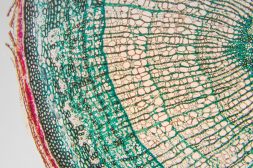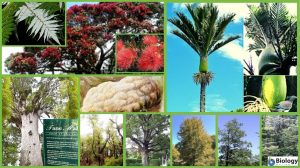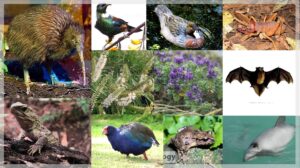Definition
noun, plural: barks
(botany) The outermost covering of stems and roots of woody plants (especially trees), and is composed of periderm, cortex, and phloem
(zoology) The explosive, usually loud, cry made by certain animals, especially of dogs
Supplement
In botany, the bark is the outer covering of the stems and the roots of woody plants, especially of trees. Its three major components are (1) periderm, (2) cortex, and (3) phloem. The periderm is the layer of the bark that is exposed to the environment. It is composed of the cork, the cork cambium, and the phelloderm. The cork, also known as the phellem, is the outermost layer of the periderm. It is made up of dead cork cells impregnated with suberin and tannin. It is impermeable and therefore prevents water loss. It also protects the inner plant tissues from mechanical injuries and pathogens. The cork cells come from the meristematic tissue, cork cambium (also called phellogen). Apart from the cork cells, the cork cambium gives rise to new cells that form the inner layer of the periderm, the phelloderm. Next to the periderm is the cortex, which is comprised of ground tissues. Included as well in the bark is the phloem, which is the conductive tissue responsible for the translocation of food materials. The phloem tissue includes fibres that provide structural support. The fibres are one of the components in the bark that are harvested for their commercial use. In particular, the bast fibres are collected for the making of hemp, flax, etc.
In zoology, bark pertains to the explosive cry produced by certain animals, especially of dogs. Other animals that make such sound are foxes, wolves, coyotes, etc.
See also:
- periderm (botany)
- cortex (botany)
- phloem (botany)
Related term(s):





